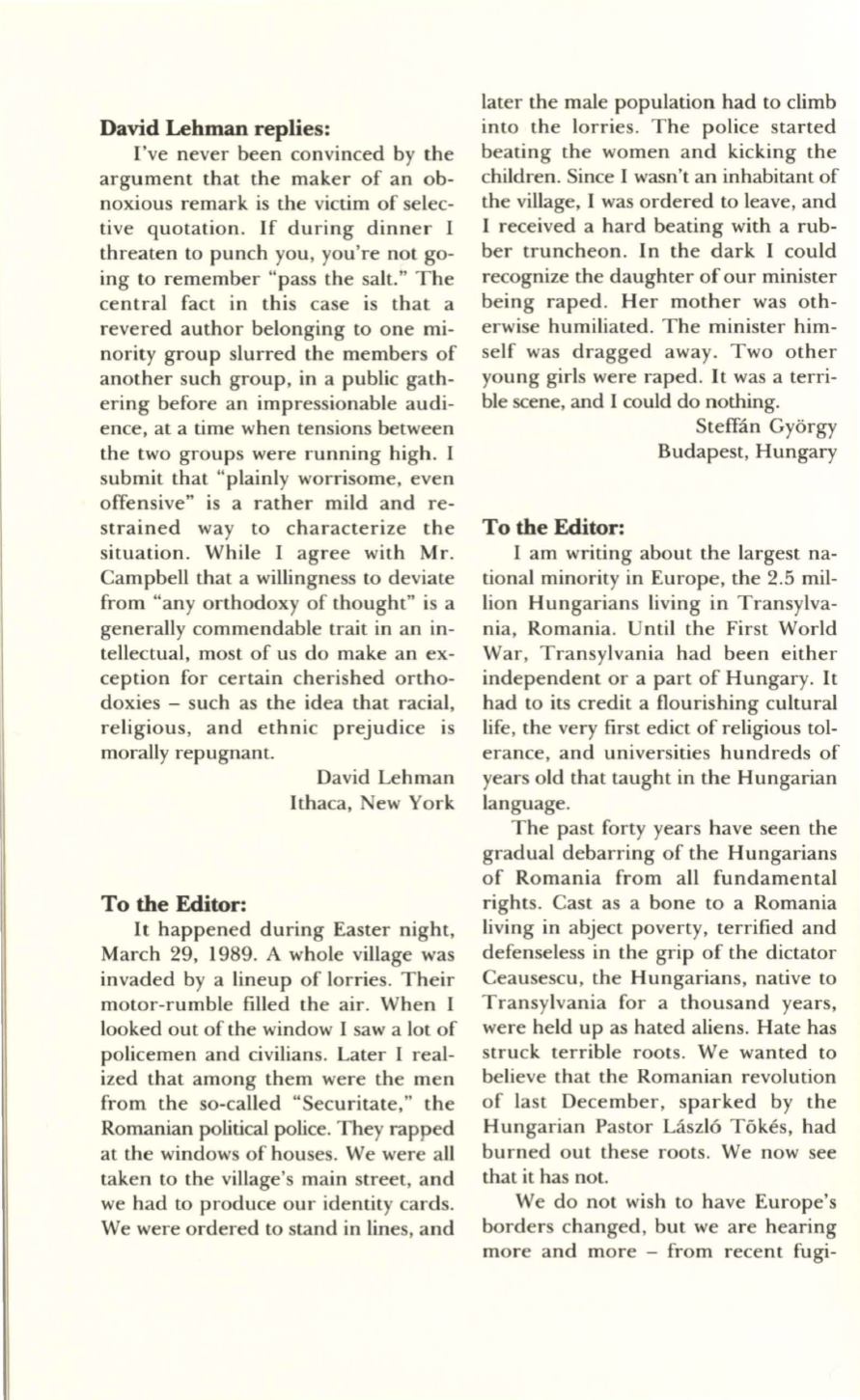
David Lehman replies:
I've never been convinced by the
argument that the maker of an ob–
noxious remark is the victim of selec–
tive quotation . If during dinner I
threaten to punch you, you're not go–
ing to remember "pass the salt." The
central fact in this case is that a
revered author belonging to one mi–
nority group slurred the members of
another such group, in a public gath–
ering before an impressionable audi–
ence, at a time when tensions between
the two groups were running high. I
submit that "plainly worrisome, even
offensive" is a rather mild and re–
strained way to characterize the
situation. While I agree with Mr.
Campbell that a willingness to deviate
from "any orthodoxy of thought" is a
generally commendable trait in an in–
tellectual, most of us do make an ex–
ception for certain cherished ortho–
doxies - such as the idea that racial,
religious, and ethnic prejudice is
morally repugnant.
To the Editor:
David Lehman
Ithaca, New York
It
happened during Easter night,
March 29, 1989. A whole village was
invaded by a lineup of lorries. Their
motor-rumble filled the air. When I
looked out of the window I saw a lot of
policemen and civilians. Later I real–
ized that among them were the men
from the so-called "Securitate," the
Romanian political police. They rapped
at the windows of houses. We were all
taken to the village'S main street, and
we had to produce our identity cards.
We were ordered to stand in lines, and
later the male population had to climb
into the lorries. The police started
beating the women and kicking the
children. Since I wasn't an inhabitant of
the village, I was ordered
to
leave, and
I received a hard beating with a rub–
ber truncheon. In the dark I could
recognize the daughter of our minister
being raped. Her mother was oth–
erwise humiliated. The minister him–
self was dragged away . Two other
young girls were raped.
It
was a terri–
ble scene, and I could do nothing.
To the Editor:
Steffan Gyorgy
Budapest, Hungary
I am writing about the largest na–
tional minority in Europe, the 2.5 mil–
lion Hungarians living in Transylva–
nia, Romania. Until the First World
War, Transylvania had been either
independent or a part of Hungary. It
had to its credit a flourishing cultural
life, the very first edict of religious tol–
erance, and universities hundreds of
years old that taught in the Hungarian
language.
The past forty years have seen the
gradual debarring of the Hungarians
of Romania from all fundamental
rights . Cast as a bone to a Romania
living in abject poverty, terrified and
defenseless in the grip of the dictator
Ceausescu, the Hungarians, native to
Transylvania for a thousand years,
were held up as hated aliens. Hate has
struck terrible roots. We wanted to
believe that the Romanian revolution
of last December, sparked by the
Hungarian Pastor Laszl6 Tokes, had
burned out these roots . We now see
that it has not.
We do not wish to have Europe's
borders changed, but we are hearing
more and more - from recent fugi-


